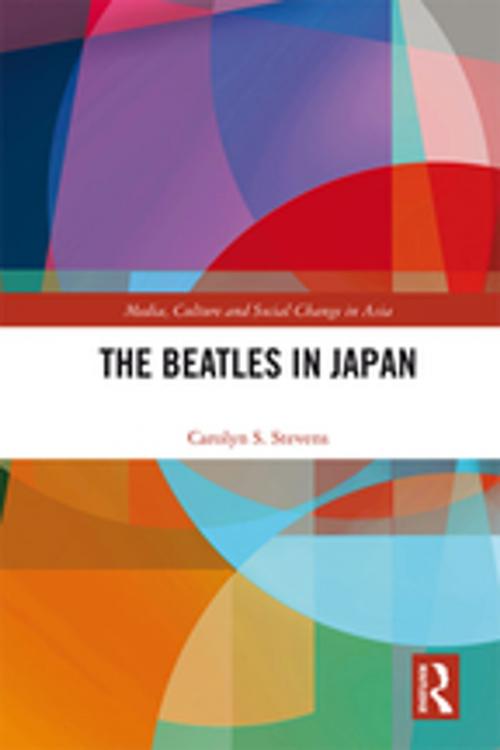The Beatles in Japan
Nonfiction, Social & Cultural Studies, Social Science, Cultural Studies, Ethnic Studies| Author: | Carolyn S. Stevens | ISBN: | 9781315533032 |
| Publisher: | Taylor and Francis | Publication: | November 22, 2017 |
| Imprint: | Routledge | Language: | English |
| Author: | Carolyn S. Stevens |
| ISBN: | 9781315533032 |
| Publisher: | Taylor and Francis |
| Publication: | November 22, 2017 |
| Imprint: | Routledge |
| Language: | English |
Following their first tour to Japan in 1966, the Beatles would become an important part of Japan’s postwar cultural development and its deepening relationship with the West. By the 1960s Japan’s dramatic rise in prosperity and the self-confidence of the country’s ‘economic miracle’ period were yet to come; it was not, at this stage, considered a fully-fledged partner of the West. All these potential developments were consolidating around the time of the 1966 tour. The Beatles' concerts in Tokyo contributed to the construction of a new Japanese national identity and introduced Japan as a new potential market to UK and US music producers, broadening the country’s transnational cultural links. This book explores the Beatles’ engagement with Japan within the larger context of the country’s increased global connection and large-scale economic, social and cultural change. It describes the great impact of the Beatles’ contentious 1966 tour, which took place amid public displays of both euphoric ‘Beatlemania’ and angry protests, and discusses the lasting impression of this tour on Japanese culture and identity to the present day. The Beatles’ relationship with Japan did not end after their departure; this book also examines the Beatles’ subsequent contacts with Japan, including John Lennon’s marriage and artistic partnership with Yoko Ono, and Paul McCartney’s later Japanese tours and the warm reception the ex Beatles and their musical legacy have received over the years.
Following their first tour to Japan in 1966, the Beatles would become an important part of Japan’s postwar cultural development and its deepening relationship with the West. By the 1960s Japan’s dramatic rise in prosperity and the self-confidence of the country’s ‘economic miracle’ period were yet to come; it was not, at this stage, considered a fully-fledged partner of the West. All these potential developments were consolidating around the time of the 1966 tour. The Beatles' concerts in Tokyo contributed to the construction of a new Japanese national identity and introduced Japan as a new potential market to UK and US music producers, broadening the country’s transnational cultural links. This book explores the Beatles’ engagement with Japan within the larger context of the country’s increased global connection and large-scale economic, social and cultural change. It describes the great impact of the Beatles’ contentious 1966 tour, which took place amid public displays of both euphoric ‘Beatlemania’ and angry protests, and discusses the lasting impression of this tour on Japanese culture and identity to the present day. The Beatles’ relationship with Japan did not end after their departure; this book also examines the Beatles’ subsequent contacts with Japan, including John Lennon’s marriage and artistic partnership with Yoko Ono, and Paul McCartney’s later Japanese tours and the warm reception the ex Beatles and their musical legacy have received over the years.















